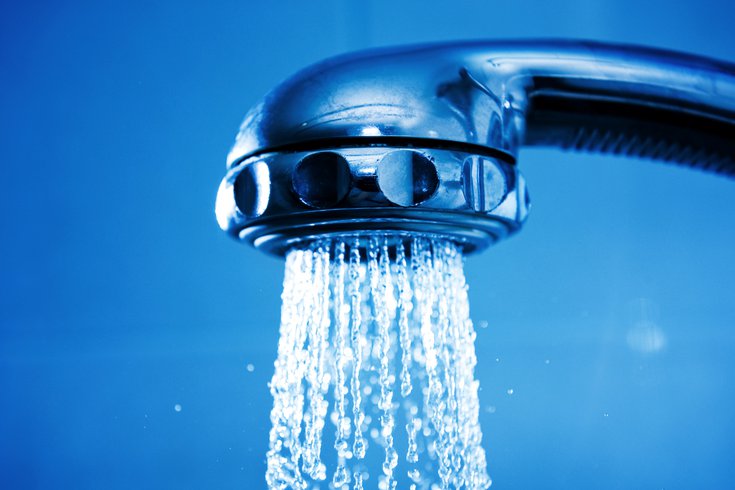
February 11, 2021
 Source/Image licensed from Ingram Image
Source/Image licensed from Ingram Image
The scientifically grounded benefits of taking cold showers range from healthier skin and weight loss to improved circulation and resiliency.
Healthy behavior often comes with a price tag — gym memberships, meal plans, running shoes and the like. Then there's the time commitment — workouts wedged in between the hustle and bustle of life, and the extra effort that goes into eating right and avoiding the fast food. Finally, you can't forget the pain. The duress you endure until you reach the state where you look forward to exercise.
So, what if I told you about a healthy behavior that was practically free, required little time each day and could have a positive impact on your physical and mental health. Too good to be true?
Consider cold hydrotherapy, or more fundamentally, the cold shower, and the benefits associated with a daily cold rinse. The North American Journal of Medical Sciences says the ancient ritual has a scientific evidence-based effect on various systems of the body.
Hydrotherapy certainly is not a panacea, but some of its benefits are anchored in traditional science. Others are seemingly more hypothetical in the research literature. Nevertheless, consensus among a number of experts is that cold showering on a regular basis has benefits, particularly as a complement to an otherwise healthy lifestyle.
I don't know when or why I started a cold rinse when showering. I just know that as long as I can remember, that's what I've done. Perhaps I read something somewhere. It could have been my parents' advice. Maybe my fascination with James Bond, a big cold-shower guy.
Whatever the source, I have always enjoyed the cold rinse. The discipline of enduring even a few seconds of the cold blast of water is rewarding, and the rush jump-starts my day. While the practice works for me, only recently did I become aware of its wide range of reported benefits.
The scientifically grounded gains range from healthier skin and weight loss, to improved circulation and resiliency. The more hypothetical benefits include depression relief, impact on tumor growth and increased testosterone. My focus will be on the most scientific, but irrespective of the depth of research, the value proposition offered for a few minutes of dousing each day is noteworthy.
According to Jillian Levy, a certified holistic health counselor, a shower with water that is roughly 50 to 60 degrees Fahrenheit is considered cold. Cold exposure causes the body to release a rush of stress hormones, including cortisol, norepinephrine and adrenaline. Though a high release of stress hormones may sound bad, it's actually very beneficial when it happens briefly and people give themselves time to recover — much like exercise, fasting and other good stressors, Levy says.
Dr. Jessie Cheung, a dermatologist, says cold water helps constrict blood vessels in the skin to temporarily tighten pores and decrease redness and puffiness. Moreover, Cheung suggests the cold temperatures boost circulation, and that might mean a healthy glow for your face.
The Harvard Business Review reports on a study conducted in The Netherlands that concluded that cold showers lead to fewer sick days.
The study, which involved 3,000 participants, found those who finished their morning showers with a 30-, 60-, or 90-second blast of cold water missed 29% fewer work days than a control group. When considering people who also engaged in regular physical activity, that number increased to 54%.
The key point highlighted by the researchers: participants who took the cold showers actually reported feeling equally ill just as many days, on average, as the people who showered normally. However, either their symptoms were less severe or they felt more energetic, so they were better able to push through the sickness and function anyway.
Researchers at the Joslin Diabetes Center have discovered that small clusters of brown fat cells begin to burn up calories to maintain body temperature when people are exposed to sufficient cold temperatures. Experts suggest that cold showers represent one way to stimulate such brown fat-burning action that can promote weight loss.
Cold showers increase the body's circulation, according to an article reviewed by Dr. Alana Biggers, an assistant professor at the University of Illinois, Chicago College of Medicine. As cold water hits the body and external limbs, it constricts circulation on the surface of the body. This causes blood in the deeper tissues to circulate at faster rates to maintain an ideal body temperature, which can help prevent cardiovascular disease.
Improved blood circulation triggered by a cold shower also can boost people's moods as the shower brings down the blood pressure increase associated with anxiety, according to a publication reviewed by Janet Brito, a licensed clinical psychologist and social worker. The report suggests that cold showers also can increase endorphins that ease symptoms of depression and anxiety and decrease cortisol, a stress-inducing hormone.
I like simple. Anything that I can do to improve my health and well-being that doesn't require a new password, cost money or add another layer of complexity to my life is attractive.
I also like value. Return on investment, even if that investment is a couple minutes under an icy cold deluge, plays well with me. Finally, I like feeling good and contributing to my longevity. Simple and effective, the cold shower checks all the boxes.
If your only experience with cold hydrotherapy is having a beer at the Polar Bear Plunge, try a short cold blast finish next time you shower. Start slow and try to build up to anywhere between 2 to 5 minutes. The feeling is amazing and the benefits are worth every minute.
Louis Bezich, senior vice president of strategic alliances at Cooper University Health Care, is author of "Crack The Code: 10 Proven Secrets that Motivate Healthy Behavior and Inspire Fulfillment in Men Over 50." Read more from Louis on his website.